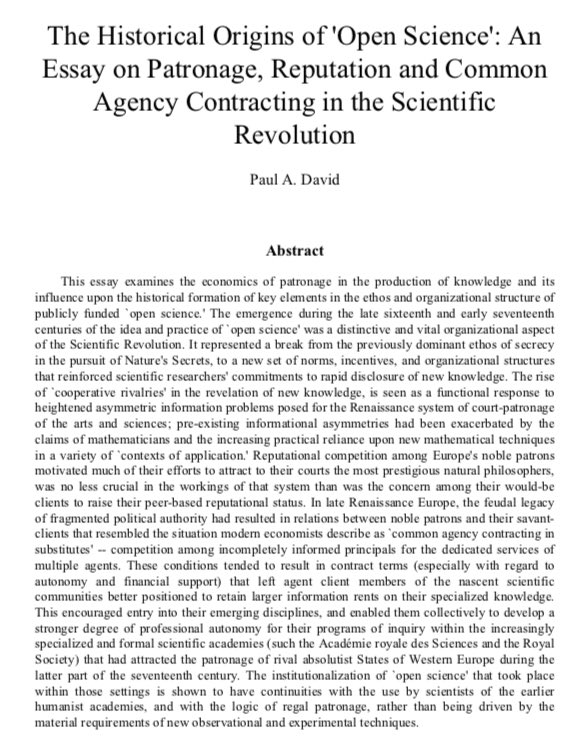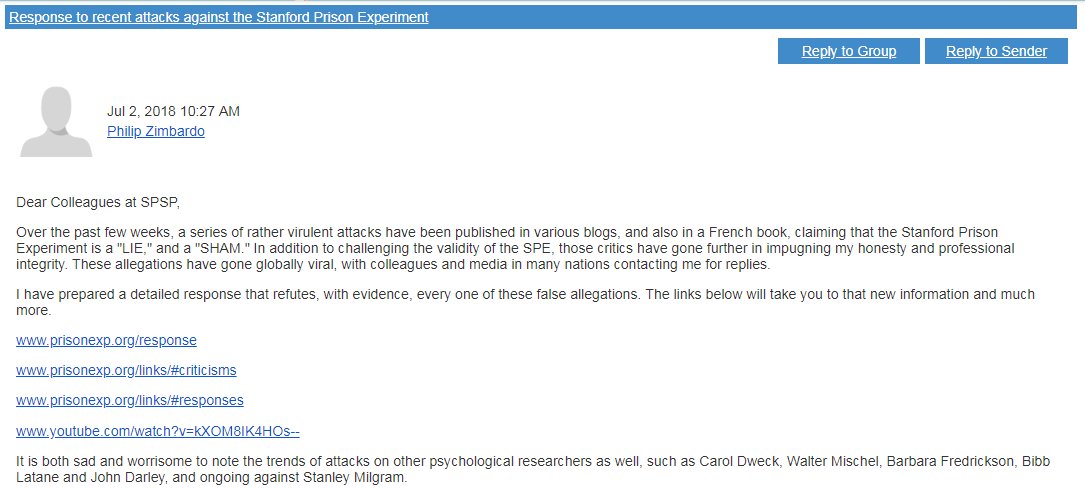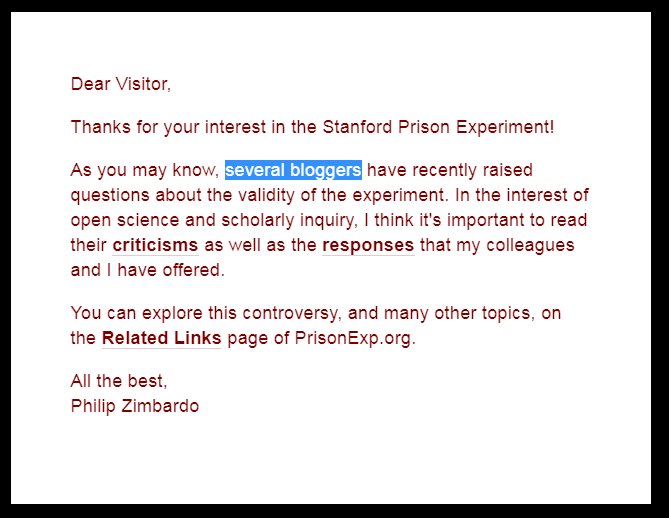
Director @BusaraCenter | Meta-research | Global development | Behavioral science | patrick dot forscher at busara dot global
How to get URL link on X (Twitter) App


 We also review different barriers and risks of the adoption of big team science and analyze different strategies to address these barriers and risks
We also review different barriers and risks of the adoption of big team science and analyze different strategies to address these barriers and risks 


https://twitter.com/ct_bergstrom/status/1219916625375219712
 The paper offers no clear guidance about what would happen in such a field. I’m not sure either but I have some speculations based on what I think technology does for science as a whole.
The paper offers no clear guidance about what would happen in such a field. I’m not sure either but I have some speculations based on what I think technology does for science as a whole.


 David starts with the following question: why should scientists make their knowledge public?
David starts with the following question: why should scientists make their knowledge public?



 We posted the original version of this paper in August 2017. We relied on mTurk recruitment in that original paper and received some incisive criticism from @ScottClif on that point
We posted the original version of this paper in August 2017. We relied on mTurk recruitment in that original paper and received some incisive criticism from @ScottClif on that point

 Implicit bias is frequently invoked as a way to understanding social problems, especially disparities between social groups. However, social disparities are not the only area: there's a burgeoning literature applying the concepts of implicit bias to addiction
Implicit bias is frequently invoked as a way to understanding social problems, especially disparities between social groups. However, social disparities are not the only area: there's a burgeoning literature applying the concepts of implicit bias to addiction

 There's also a new notice if you go to prisonexp.org. It's good that he's directing people to both criticisms and responses, though I find it quite odd that Zimbardo continues to use the term "bloggers" to describe the critics
There's also a new notice if you go to prisonexp.org. It's good that he's directing people to both criticisms and responses, though I find it quite odd that Zimbardo continues to use the term "bloggers" to describe the critics 
External Tweet loading...
If nothing shows, it may have been deleted
by @NIH_Bear view original on Twitter